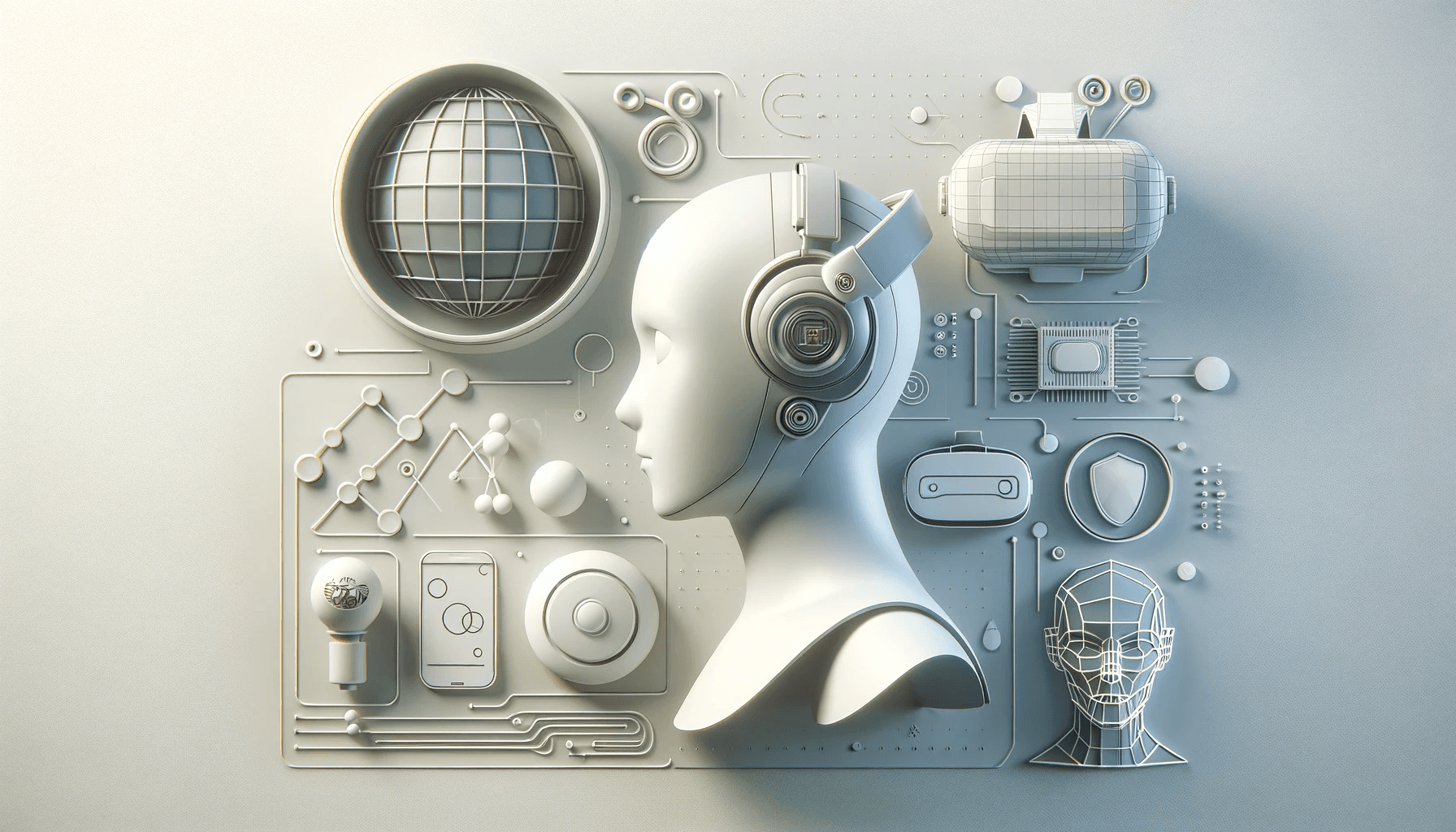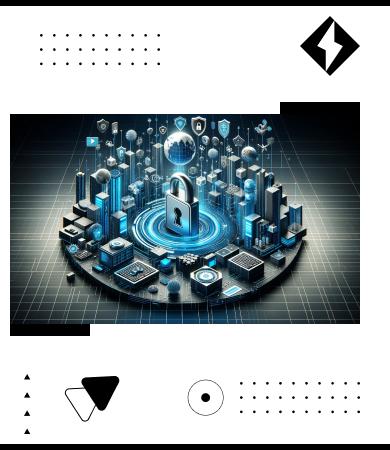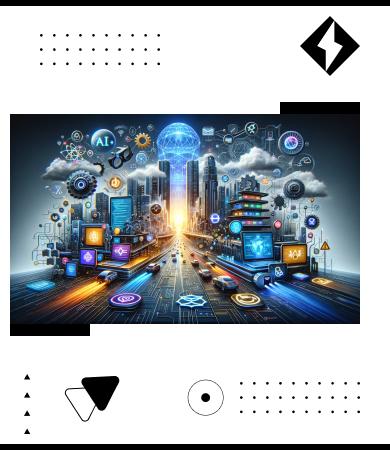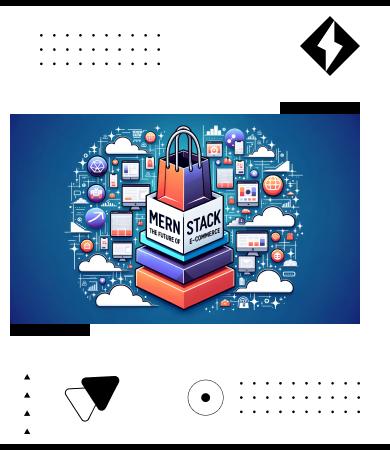Support center +91 97257 89197
Web DevelopmentNovember 21, 2023
AI, VR, & AR: The New Frontier in Web Development

Introduction:
In the ever-evolving landscape of digital technology, three acronyms have been steadily reshaping the world of web development: AI (Artificial Intelligence), VR (Virtual Reality), and AR (Augmented Reality). These technologies, once the stuff of science fiction, are now at the forefront of innovative web experiences. From AI's ability to automate and personalize to VR and AR's immersive experiences, the integration of these technologies is setting a new benchmark in how we interact with the digital world. This blog delves into how AI, VR, and AR are revolutionizing web development and what the future holds for this exciting convergence.
1. Artificial Intelligence (AI) in Web Development:
AI-Powered Chatbots: Enhancing User Engagement and Customer Service Efficiency
Gone are the days of static web pages and one-size-fits-all content. Today, AI in web development is epitomized by AI-powered chatbots. These intelligent bots provide a dynamic user experience, offering personalized customer service and support. By leveraging natural language processing, these chatbots can understand and respond to user queries, providing instant assistance.
Automated Web Design: Tools like The Grid
AI has also made its mark in automated web design. Tools like The Grid use AI to design websites based on user content, making web design more accessible and efficient. By analyzing user input, these tools automatically generate aesthetically pleasing layouts, color schemes, and content organization.
Personalized User Experiences: AI Algorithms
The most significant advantage of AI in web development is the ability to create personalized user experiences. AI algorithms analyze user data and behavior to tailor website content, recommendations, and advertisements, ensuring a unique and relevant experience for each user.
AI in SEO: Predictive Analytics and Machine Learning
AI's role in SEO cannot be overstated. With predictive analytics and machine learning, AI assists in identifying patterns and trends in user behavior. This data is crucial for optimizing website content to improve search engine rankings and visibility.
2. Virtual Reality (VR) in Web Development:
Immersive Web Experiences: How VR Transforms User Experience on the Web
VR in web development marks a shift towards creating immersive and interactive web experiences. With VR, users are not just viewers but active participants in a 3D world. This technology is particularly impactful in fields like real estate, education, and entertainment, where experiencing a realistic environment can significantly enhance user engagement.
WebVR Development: The Rise of VR-Compatible Websites
The advent of WebVR, an open standard that makes it possible to experience VR in your browser, has made VR more accessible. Now, developers can create VR experiences that are viewable directly in web browsers, without the need for specialized software.
E-commerce and VR: The Evolution of Online Shopping with Virtual Showrooms
In e-commerce, VR has revolutionized the shopping experience. Virtual showrooms allow customers to experience products in a 3D environment, providing a better sense of size, design, and features. This immersive shopping experience is changing the way consumers interact with products online.
Challenges and Opportunities
Despite its potential, VR in web development faces challenges, particularly in terms of hardware requirements and accessibility. However, as technology advances and becomes more affordable, these barriers are likely to diminish.
3. Augmented Reality (AR) in Web Development:
AR for Interactive Marketing: Innovative Ways Brands Use AR for Customer Engagement
AR is taking interactive marketing to new heights. Brands are using AR for engaging marketing campaigns that overlay digital information onto the physical world. From trying on clothes virtually to visualizing furniture in your room, AR offers a novel way for brands to connect with their customers.
Web-based AR Experiences: Development of AR Experiences Directly in Web Browsers
With the development of AR experiences in web browsers, users can now interact with AR without the need for specialized apps. This accessibility opens up a world of possibilities for web developers to integrate AR into their websites, enhancing user interaction and engagement.
Educational Applications: Enhancing Learning and Training through Interactive AR Content
In education, AR can provide interactive and immersive learning experiences. By overlaying digital information onto real-world environments, AR makes learning more engaging and effective, offering a hands-on experience that traditional methods cannot match.
Future of AR in Web: Trends and Future Advancements
The future of AR in web development is bright, with ongoing advancements in technology. As AR becomes more sophisticated and user-friendly, its applications in web development are set to increase, offering more engaging and interactive web experiences.
4. Integrating AI, VR, and AR into Web Development:
Tools and Frameworks
Several tools and frameworks are available for integrating AI, VR, and AR into web development. A-Frame for VR, AR.js for AR, and TensorFlow for AI are just a few examples of the tools that developers can use to create sophisticated and interactive
web experiences.
Best Practices
When integrating these technologies, best practices include keeping user experience at the forefront, ensuring accessibility, and testing extensively across different devices and platforms.
User-Centric Design
At the core of integrating AI, VR, and AR into web development is a user-centric design approach. Balancing technological innovation with usability and user experience is key to successful implementation.
5. The Future of AI, VR, and AR in Web Development:
Emerging Trends
The intersection of AI, VR, and AR with web development is set to create trends that redefine what is possible on the web. From AI-driven automated development processes to VR and AR's immersive experiences, these technologies will continue to push the boundaries of web development.
Ethical Considerations
As we embrace these advanced technologies, ethical considerations, particularly around privacy and data security, become increasingly important. Ensuring responsible use of AI, VR, and AR is essential to maintain user trust and comply with regulations.
Preparing for the Future
To stay ahead, developers and businesses need to be proactive in learning about and adopting these technologies. Staying updated with the latest trends and advancements is crucial for leveraging the full potential of AI, VR, and AR in web development.
Conclusion:
The integration of AI, VR, and AR in web development is not just an emerging trend; it's a paradigm shift. As these technologies continue to evolve, they offer new frontiers in creating dynamic, interactive, and personalized web experiences. For enterprises, staying ahead in this digital revolution means embracing these technologies, understanding their potential, and innovatively applying them to enhance user experience and engagement.
TLDR
This article explores the transformative role of AI, VR, and AR in web development. It covers AI-powered chatbots and automated design, immersive experiences through VR, interactive marketing with AR, integration tools and frameworks, and future trends in these technologies. The blog emphasizes the need for a user-centric approach and discusses ethical considerations, offering insights into the new frontiers of web development with AI, VR, and AR.
FAQs
AI enhances web development with automated design and personalized user experiences, VR offers immersive web experiences, and AR introduces interactive marketing and web-based experiences.
VR can transform e-commerce by creating virtual showrooms, allowing customers to experience products in a 3D environment, thereby enhancing engagement and purchase confidence.
Tools like A-Frame for VR, AR.js for AR, and TensorFlow for AI are essential for integrating these technologies into web development, helping create more dynamic and interactive user experiences.
Ethical considerations include privacy concerns, data security, and ensuring these technologies are used responsibly to maintain user trust and comply with regulations.
Future trends include more sophisticated AI-driven automation in web design, widespread adoption of VR and AR for immersive experiences, and a greater focus on creating ethical, user-centric applications.
Work with us







